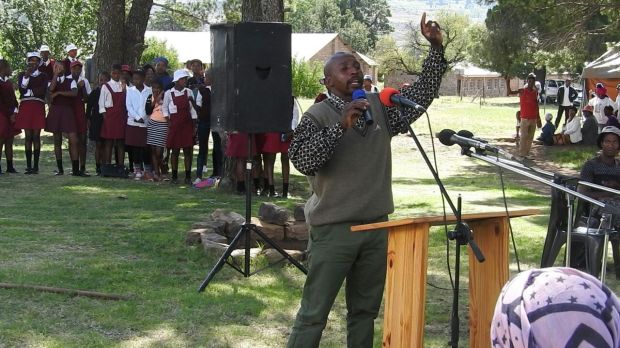By Nkosingiphile Mkhombe, MCC Seeder in Lesotho
I work with Growing Nations Trust in Lesotho, and their vision is transformation through sustainable agriculture. This means that the goal is not only to increase food availability, but also to transform people’s lives in a deeper way by changing their mindset. One of the ways that sustainable agriculture can impact people’s lives is by increasing peace at the family and community level. There are many examples of ways that food security can result in more peace:
- Well established successful farmers have enough to feed their families so there will be fewer quarrels at home.
- CA can increase farmers’ yields, meaning that they have enough food to sustain themselves. As a result, they no longer bother each other to borrow money to buy food or bother shop owners asking for credits. This means there is more peace among the community members.
- Good implementers can also sell excess produce adding to their economic stability, which is a peaceful way of earning cash.
- CA encourages farmers to cultivate in harmony with nature, not fighting against it. When we conserve the environment we have the peace of a sustainable future.
- Excess food may be sometimes given to the poor and needy which encourages healthy communities. Peaceful communities means that no one will be suspecting neighbours of malicious or bewitching acts, resulting in a healthier community atmosphere.
- If livestock integration is mastered the community can also enjoy quality meat and milk and also cash from selling good quality products of their livestock.
- Growing Nations encourages people to work together and assist each other, thereby encouraging peace.
- Farmer Groups, Wards Platforms, and Farmer Field Schools encourage people to aspire to stay together sharing CA information.
- Quality CA reduces theft as there will be plenty of food so people will live in harmony
- When people value agriculture as a worthy and profitable livelihood, they will spend more time farming and less time mixing with the wrong people.
- Increased economic stability and food security can also reduce the need for migration to other countries in search of employment.
Story from a CA farmer

Mr. Salemane Khutliso shares his personal testimony of transformation through sustainable agriculture at Growing Nation Trust’s 10th anniversary celebrations in March, 2018.
“I am an ex mine worker [I used to leave my family every year to go work in the mines in the neighbouring country of South Africa]. When I first heard about CA [conservation agriculture] I did not have much interest in it. But as time went on I started to practice CA in a small garden in my backyard. I was surprised when I got a big yield on such a small area. I began to increase the area of land and really started to focus on CA. By harvest time my yield was even higher. In 2015 in Lesotho it was a terrible year for droughts, but using CA I still managed to get a good yield. After setting aside the maize my family needed to eat I even had surplus to sell and made a good profit. The money I got from CA farming was even better than I used to get in the mines. CA is also for lazy people [laughing]… I say this because it requires less work than our traditional farming methods. I am very thankful for the people who introduced us to this kind of farming.
In reality, this type of farming improves the soils. There is a field at my home where I never used to get much yield, but now it has changed to be my best field. Soil improvement is much needed In Lesotho because here there are many dongas (gullies caused by soil erosion). Those dongas used to be fields, but the soil was poor quality so it became loose and vulnerable to rain water running down the mountain sides causing it to wash away.
I can advise everybody to take up this type of farming because it really is an answer to the Basotho people. Now I am paying school fees for my children but I don’t have to work in town or in the mines, I just sell my farm produce to people and get enough money.” Mr. Salemane Khutliso